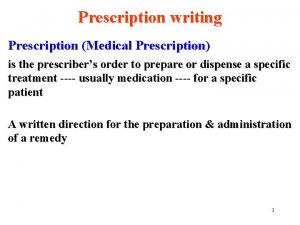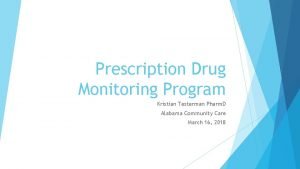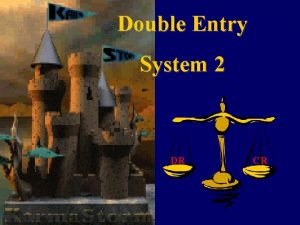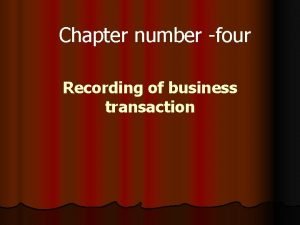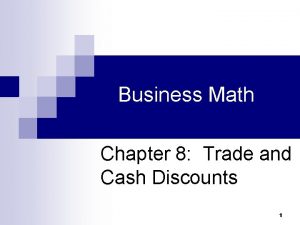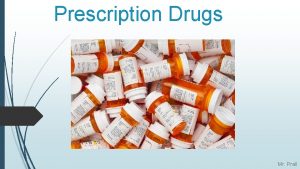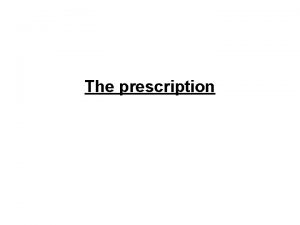Overview of the New MedicareEndorsed Prescription Drug Discount






- Slides: 6

Overview of the New Medicare-Endorsed Prescription Drug Discount Card Program John Richardson National Medicare Prescription Drug Congress February 27, 2004 The Health Strategies Consultancy The Intersection of Business Strategy and Public Policy

What is a Prescription Drug Discount Card? • Commercial products that lower retail price of Rx drugs • Target market: Consumers who have no or limited insurance coverage for prescription drugs – Individual generally must sign up to enroll, may pay enrollment fee • Sponsors: Membership organizations (e. g. , AARP, AAA); pharmacy benefit managers (PBMs); retail pharmacies; health plans; states; pharmaceutical manufacturers • Operations: Sponsor or subcontracted PBM will— – Negotiate with other entities in supply chain that affect retail price – Provide IT infrastructure to deliver negotiated discounts at point of sale when enrollee presents their card The Health Strategies Consultancy 2

How Do Card Sponsors Secure Retail Price Discounts? • Card Sponsor (or PBM subcontractor) – Negotiate rebates and/or discounts with pharmacies and manufacturers (if applicable) – Pass portion of rebates and discounts through to card holders; retain portion to cover own costs and profit • Retail Pharmacies – Negotiate with card sponsor/PBM for inclusion in card’s pharmacy network and level of dispensing fees and mark-up • Pharmaceutical Manufacturers – Negotiate rebates with card sponsors for “preferred drug” status (if applicable, i. e. , there is some form of drug list) The Health Strategies Consultancy 3

Price Offered by Card Programs is Influenced by a Number of Factors Regional Variation Pharmacy Type (retail, mail order, Internet) Price Generic vs. Brand Drug Negotiating Power of Card Sponsor The Health Strategies Consultancy 4

Key Dates in Implementation of Medicare Drug Discount Card Program • Dec. 8, 2003: MMA is signed into law • Dec. 15: CMS publishes interim final rule for discount card program • Dec. 18 -19: CMS holds pre-application conference for potential card sponsors and other interested parties • Jan. 14, 2004: Deadline for public comment on interim final rule • Jan. 30: Deadline for card sponsor applications to CMS • End of March: Card sponsor contracts finalized • April 1: Card sponsor information and outreach may begin • April 30: CMS launches Discount Card Price Comparison Web site • May 3: Card sponsors may begin enrollment • June 1: Discount card program begins • Nov. 15 - Dec. 31: Enrollees may elect to switch cards for 2005 • Jan. 1, 2006: Part D benefit starts; discount card program ends The Health Strategies Consultancy 5

Concluding Thoughts and Questions • Nature of drug price disclosures—how well will beneficiaries understand process drug pricing information? • Will CMS-mandated “therapeutic categories” produce manufacturer rebates and thus added value for beneficiaries? • Discount card program is “first date” between CMS and pharma industry—What expectations will be set? – Strong interest from potential card sponsors & drug manufacturers – Opportunity in marketing of card and establishing brand visibility – CMS balancing regulatory oversight and incredibly fast “go-live” imperative, while also learning about very complex industry – Both partners building relationship needed for success of Part D The Health Strategies Consultancy 6
